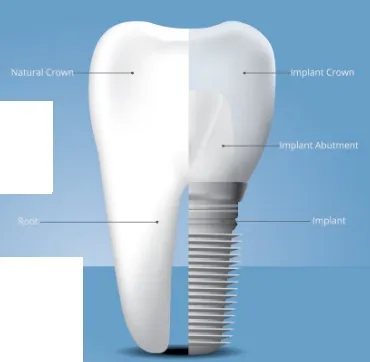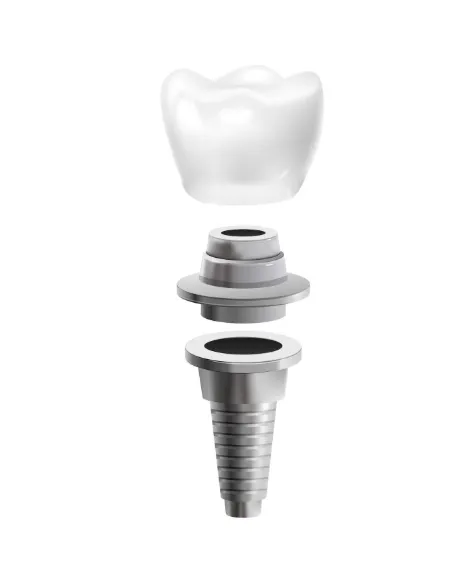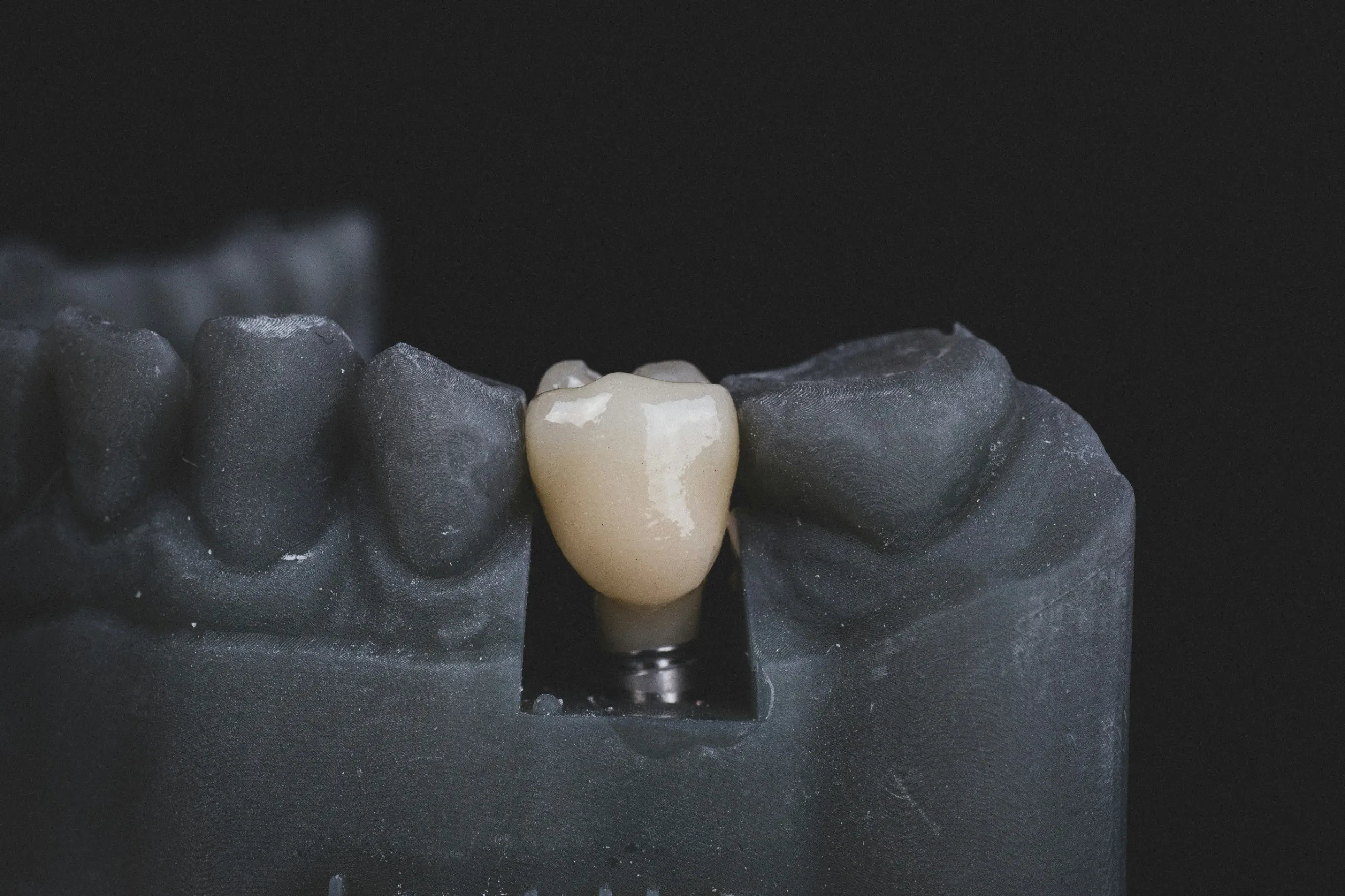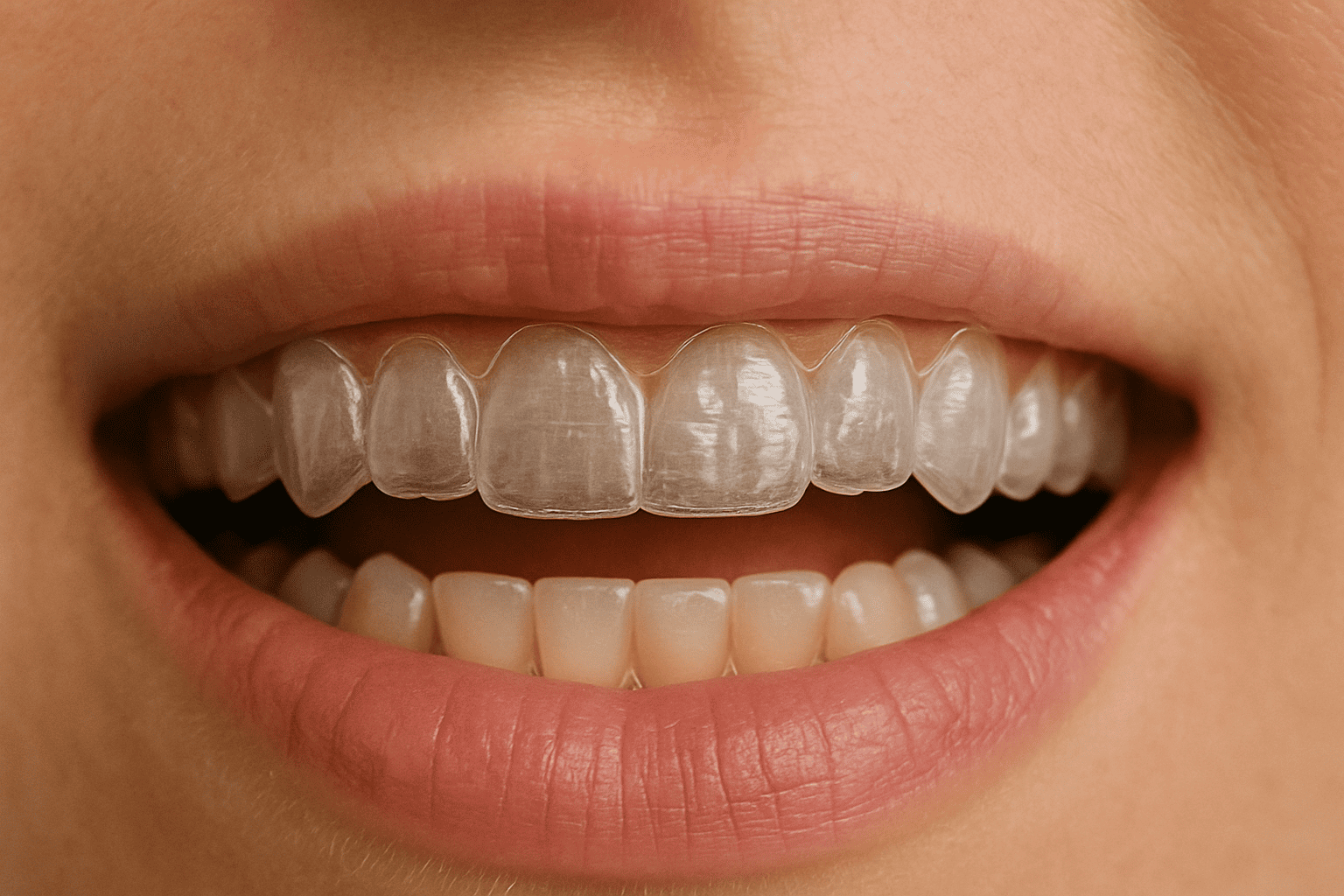How Do Dental Implants Work: Full Guide
Missing a tooth? Dental implants provide a natural, long-lasting fix to restore your smile and confidence. Discover how they work, their benefits, and how to care for them.

Missing a tooth and wondering how to restore your confident smile? Dental implants could be the answer you’re seeking. For many in the UK, implants offer a permanent, natural-feeling solution to replace missing teeth, blending seamlessly with your smile. This blog post provides a comprehensive guide tailored for UK residents, explaining how dental implants work, their benefits, and whether NHS or private options are best for you.
Whether you’re in London, Manchester, or beyond, you’ll gain a clear understanding of the procedure, who qualifies, and how to care for implants long-term.
What Are Dental Implants?
Dental implants are like artificial tooth roots, usually made from titanium, that are surgically placed into your jawbone to hold a replacement tooth, bridge, or denture. Think of them as a sturdy anchor that feels and functions like your natural teeth. They’re increasingly popular in the UK, with clinics reporting growing demand due to their durability and natural look.
Components of a Dental Implant
- Implant Body: A titanium screw that acts as the tooth’s root, fusing with your jawbone.
- Abutment: A connector that links the implant to the visible part of the tooth.
- Restoration: The crown, bridge, or denture that looks like your natural teeth.
Titanium is used because it’s biocompatible, meaning your body accepts it easily, and it bonds well with bone. For the rare few with titanium allergies, ceramic implants are an option available in some UK clinics. The concept of implants isn’t new—ancient civilisations tried using shells or stones, but modern implants took off in the 1950s when Dr. Per-Ingvar Brånemark discovered osseointegration, the process where bone fuses with titanium, creating a rock-solid base.
In the UK, implants do more than fill gaps. They restore your ability to chew, speak clearly, and smile confidently while preventing jawbone loss, which can change your facial shape over time.

The Dental Implant Process: Step-by-Step
Getting a dental implant is a step-by-step process that takes a few months to achieve a strong, natural-looking tooth. UK clinics follow strict guidelines to ensure safety and precision. Here’s how it’s done:
1. Initial Assessment
Your dentist will start with a thorough check-up, using X-rays or 3D scans to examine your jawbone and oral health. They’ll discuss your medical history, risks, benefits, and alternatives like bridges or dentures. If your jawbone is too thin or weak, you might need bone grafting, which some UK private clinics offer.
2. Implant Placement
Under local anaesthesia (with sedation options offered in some clinics), the dentist makes a small incision in your gum to place a titanium screw into your jawbone. You’ll be numb in the area during the 1-2 hour procedure per implant, although mild discomfort may follow, which is manageable with paracetamol. Stitches close the incision, and for front teeth, a temporary restoration can help keep your smile looking great during the healing process.
3. Healing and Osseointegration
Over the course of 3-9 months, your jawbone grows around the implant in a process called osseointegration, locking it in place. You may experience minor swelling or discomfort, which can be managed with paracetamol or ibuprofen. During this time, you’ll follow a soft-food diet to avoid stressing the implant.
4. Abutment Placement
Once healed, a small surgery attaches the abutment, which pokes through your gum to hold the restoration. Your gums heal for about 2 weeks. Sometimes a clinician might place the abutment during the initial surgery to save time.
5. Restoration Placement
Finally, a custom-made crown, bridge, or denture is crafted to match your natural teeth, using impressions or digital scans taken by your dentist. UK dental labs ensure the restoration looks and feels natural. This step takes about an hour, with adjustments for comfort and fit. You can choose fixed (permanent) or removable restorations based on your needs.
Types of Dental Implants
Clinics in the UK offer a range of implant options to replace one tooth or a complete set, tailored to your jaw and individual needs. Modern 3D tech ensures a perfect fit. Here’s what’s offered:
- Endosteal Implants: Placed directly into the jawbone, these are the most common in the UK, used for single teeth or full bridges.
- Subperiosteal Implants: Sit on top of the jawbone under the gum, ideal for those with less bone height, though significantly less common.
- All-on-4: Four implants support a full set of upper or lower teeth, popular in UK private clinics for those missing most or all teeth.
- Immediate Load Implants: Some UK specialists place temporary restorations on the same day as the implant, speeding up the process.

Benefits of Dental Implants
Dental implants change lives with a natural, long-lasting fix for missing teeth. With a 90-97% success rate, they help patients smile and eat confidently.
- Functionality: Chew, speak, and eat normally, just like with natural teeth.
- Aesthetics: Look so natural that no one will notice they’re not your real teeth, boosting confidence.
- Bone Health: Stimulate your jawbone to prevent shrinkage, maintaining your facial structure.
- Durability: Implants can last a lifetime with good care; crowns last about 15 years, dentures around 7+ years.
- Stability: Unlike dentures, they don’t slip or make noises, offering comfort and reliability.
- Quality of Life: Improve oral health and self-esteem.
Risks and Complications
While safe, implants carry some risks, though UK dental practices follow strict protocols to minimise them:
- Common Risks: Minor bleeding or swelling, easily managed with over-the-counter painkillers like paracetamol.
- Rare Complications: Infection, nerve damage, sinus issues, or implant failure, which are uncommon.
- Material Allergies: Titanium allergies are rare, but ceramic implants are available in some clinics.
- Peri-Implantitis: Gum disease around the implant if oral hygiene slips, preventable with regular care.
Candidacy and Eligibility
Not everyone is a candidate for implants. You’ll need healthy gums, enough jawbone, and good overall health. The minimum age is 18, but there’s no upper limit. Factors that might rule you out include smoking, active gum disease, severe bone loss, or conditions like uncontrolled diabetes. If your jawbone is too weak, bone grafting—using natural, synthetic, or donor materials—is available in the UK. While the NHS covers implants in rare cases (e.g., congenital defects), most patients go private for faster access and more options.

Pain, Recovery, and Post-Procedure Care
The procedure is done under local anaesthesia, so you won’t feel pain during surgery. Sedation is available in most private clinics for extra comfort. Recovery involves:
- Initial Healing: About a week for the gums, with full bone fusion taking 3-9 months.
- Pain Management: Mild discomfort can be handled with paracetamol or ibuprofen.
- Care Routine: Brush and floss implants like natural teeth. Regular check-ups with your dentist are essential.
- Diet: Stick to soft foods like soups or mashed potatoes during early healing, a common recovery tip.
- Imaging Note: Tell radiographers about your implants before MRIs or X-rays to avoid image distortion.
If you notice pain or looseness, contact your dentist immediately.
Success Rates and Longevity
Implants have a 90-97% success rate over 10 years, with 78-88% still functioning after 20 years, based on global studies. Success depends on your dentist’s skill, your health, oral hygiene, and avoiding smoking. With proper care, implants can last a lifetime, while crowns typically need to be replaced after about 15 years and dentures after 7 years or more.
Factors and Lifestyle That Affect Implant Success and Longevity
Dental implants can last a lifetime, but your lifestyle choices play a big role in their success. Habits like smoking, diet, and oral hygiene can make or break how well your implant heals and lasts. Here’s what patients need to know to boost their chances of a strong, long-lasting implant:
- Smoking: Smoking is a major risk for implant failure, raising the failure rate by 10–15% (up to 20% for heavy smokers), as it slows healing and increases gum disease risk, per the British Dental Journal. Quitting 4–6 weeks before and after surgery, using NHS Smokefree support (smokefree.nhs.uk), can improve success by 20%.
- Oral Hygiene: Poor brushing or flossing can lead to peri-implantitis, a gum disease that affects 2–3 times more smokers and can cause implant loss. Brush 2-3x daily, use interdental brushes, and visit a hygienist every 6 months (or as often as you are advised by your clinician).
- Diet and Nutrition: A diet low in calcium or vitamin D weakens your jawbone, impacting 15% of UK patients over 50. Eat dairy or leafy greens, and ask your GP about supplements to support bone health.
- Alcohol and Health: Heavy drinking (>14 units/week) slows healing by 5–10%, while uncontrolled diabetes doubles failure risk. Limit alcohol and keep HbA1c below 7% (NHS target).
- Bruxism: Teeth grinding, common in 10% of UK adults, can loosen implants. A night guard from your dentist can protect your investment.
By managing these factors—quitting smoking, maintaining good hygiene, and supporting your health—you can ensure your implant thrives, giving you a confident smile for years

Comparison with Alternatives
- Dentures: Removable, less stable, and can cause bone loss over time. They’re cheaper but less durable.
- Bridges: Fixed to adjacent teeth, they don’t preserve bone and last less time than implants.
- Advantage of Implants: Permanent, bone-preserving, and natural-feeling, making them a top choice for patients seeking long-term solutions.
Conclusion
Dental implants offer a durable, natural solution for patients missing one or more teeth. From the initial assessment to the final crown, the multi-step process ensures a stable, lifelong result that boosts your smile, chewing ability, and confidence.






